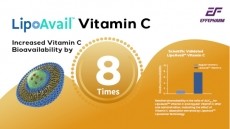Microbiome map: Research on Indian gut microbiome could help fight metabolic diseases

Prof. Vineet K. Sharma, from the IISER's Department of Biological Sciences, and PhD scholar Darshan Dhakan studied the faecal samples of over 100 healthy individuals — 57 from Kerala and 53 from Madhya Pradesh — to create a gene catalogue using multiple omics approaches, including genomics and proteomics.
This signifies the first time the details of the different genes coded by gut bacteria, as well as the functions of said bacteria, have been recorded in an Indian population.
International comparisons
At the same time, the study compared the gut microbiome of Indians with that of people in China, Denmark and the US. The Indian gut microbiome was then found to contain much higher levels of Prevotella bacteria than the other populations.
Speaking to NutraIngredients-Asia, Sharma said: "This is the first time we have established the Indian gut microbiome composition. We observed some unique signatures in the population in terms of the microbial species Prevatolla, which are very highly abundant in Indians as compared to populations in other countries.
"Indians have a very distinct and unique diet, which is richer in plant material and carbohydrates — that is the main reason for the abundance of Prevatolla (almost 70%, compared to 20% t0 25% in Western populations)."
Additionally, of the 1,551,581 genes in the international gene catalogue, 943,395 were identified as unique to the Indian population.
Sharma said: "We discovered all the microbial functions performed by the gut microbiome in the Indian population, and created a local gene catalogue. Now with Indian data in the international catalogue, anyone can use it as a reference to get the information they need on the gut microbiome’s significance for different human populations.
"One of the observations that stood out was that almost one million new genes that were not present in the Western gut microbiome were present in the India gut microbiome."
Interstate metabolomics
Apart from compositional differences between the gut microbiome of the Indian population and that of other countries' populations, Sharma also recorded his observations on the differences in the microbiome composition between the different populations within India itself.
For instance, the faecal samples from Kerala were more abundant in bacteria like Facealibacterium and Roseburia. Sharma said: "We took samples from the North (Madhya Pradesh) and South (Kerala). In the former, most of the people we took samples from were vegetarian, whereas in the latter, they were mostly non-vegetarian.
"We found microbes specific to each population, which correlated with their respective diets. We saw that SCFAs (short-chain fatty acids) were more abundant in the southern population, and BCAAs (branched-chain amino acids) were more abundant in the northern population."
The researchers also conducted a large-scale metabolome study to assess the results of microbial activity in terms of metabolites (end-products of microbial metabolism) in faecal matter. This was important as it was direct evidence of microbial activity, which provided new information.
According to Dhakan, data on faecal metabolites would allow for the evaluation of how these metabolites were altered by certain metabolic disorders, which would in turn assist in the development of pre- and probiotics suitable for those who suffer from such disorders.
Sharma said: "Indians suffer from many metabolic diseases; in fact, India is the diabetes capital of the world. Knowing the gut flora and what microbes can actually lead to diseases like diabetes is important.
"Now that we understand the Indian gut microbiome better, not just in relation to foreign populations but also among the different regions in India, we can formulate probiotics and prebiotics that are suitable for Indian consumers."
Technology and possibility
While the IISER has not yet entered into discussions with any nutraceutical firms with regards to developing pre- or probiotic supplements tailored to the Indian gut microbiome, Sharma said they were open to the possibility in future.
He added that he intended to conduct similar research on the rest of the country, so he could create a 'microbiome map' of India that would lead to better understanding of locals' gut microbiome and what they need to help in the prevention and alleviation of metabolic diseases.
He also told NutraIngredients-Asia about an AI-based software, named Drug Bug, which he had co-developed: "Drug Bug can determine which drugs can be metabolised by the microbiome. This software uses information from the gene catalogue to assess if a particular drug molecule can be properly metabolised by the gut microbiome of a given population.
"Researchers and manufacturers can use this software to help them determine what kind of nutraceuticals or dietary supplements to develop to benefit a particular population."



















